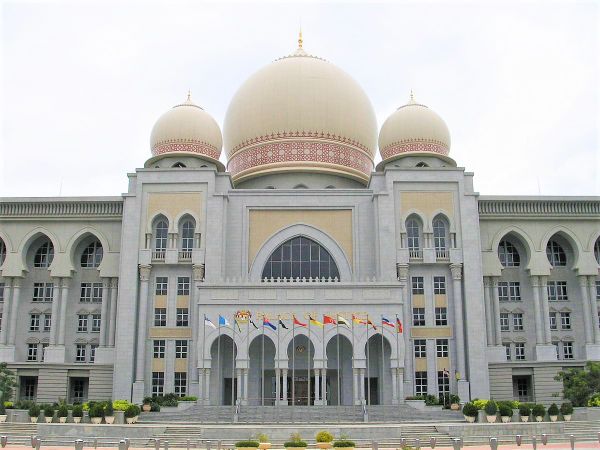By Media Selangor Team
SHAH ALAM, June 19 — Women’s rights group Sisters in Islam (SIS) has won a battle of over a decade against a fatwa issued by Selangor declaring the group “sesat” or deviant.
The Federal Court, in a landmark decision today, ruled that the edict issued by the state religious authority in 2014, which declared SIS Forum (Malaysia) deviant for subscribing to the ideologies of religious liberalism and pluralism, cannot be applied to organisations and institutions.
Chief Justice Tun Tengku Maimum Tuan Mat, who led a five-judge panel, said in the majority judgment this is because by law, “persons” professing the religion of Islam can only refer to actual people, not companies.
“We find that the phrase ‘persons professing the religion of Islam’ as used in Item 1 of List II — State List, Ninth Schedule of the Federal Constitution (Item 1), can only refer to natural persons and not artificial persons such as a company.
“The interpretation of this constitutional provision is consistent with the fact that only a natural person can recite the syahadah, perform prayers, fast during the month of Ramadan, and carry out the pilgrimage — acts that constitute the pillars of Islam.
“In the same context, a company, as an artificial or created person, does not have the capacity to repent as prescribed by the said fatwa.
“It is therefore our finding that a company cannot ‘profess’ the religion of Islam in order to be lawfully classified as ‘persons professing the religion of Islam’,” she said at the Federal Court in Putrajaya.
Today’s decision set aside previous rulings by the High Court and Court of Appeal.
The 2014 Selangor fatwa stated:
- SIS Forum (Malaysia) and any individual, organisation, or institution that subscribes to the ideologies of religious liberalism and pluralism are deviant and misguided from the teachings of Islam.
- Any publications containing elements of the ideologies of religious liberalism and pluralism must be banned and may be confiscated.
- The Malaysian Communications and Multimedia Commission must block social media sites that are contrary to the teachings of Islam and Islamic law.
- Any individual who subscribes to the ideologies of religious liberalism and pluralism must repent and return to the path of Islam.
Applying legal principles established in precedent cases, Tengku Maimum said paragraphs 1 and 4 of the edict are only valid insofar as they refer to individuals, as they fall within the jurisdiction of the respondents to issue — meaning the part where it refers to SIS is invalid.
She added that paragraphs 2 and 3 are also unconstitutional as they do not fall under the jurisdiction of the respondents.
Tengku Maimum added that there is no need to lift the “corporate veil”, as a company, organisation, or institution is most definitely driven by individuals.
As such, she said any individual responsible for the actions of a company that contravenes the fatwa remains bound by the fatwa under paragraphs 1 and 4.
“Accordingly, the issue of a company, organisation, or institution being allowed to escape responsibility for acts that breach the fatwa does not arise. Responsibility for any violation of the fatwa already rests on the individuals who operate the company, organisation, or institution.
“Our view is reinforced by paragraph 4 of the fatwa, which only requires any individual who subscribes to the ideologies of religious liberalism and pluralism to repent and return to the path of Islam.”
Court of Appeal judge Tan Sri Abang Iskandar Abang Hashim and Federal Court judge Tan Sri P. Nallini were the two other judges who supported the majority judgment, while Federal Court judge Datuk Abu Bakar Jais was the only one who dissented.
In his dissenting judgment, Abu Bakar said the shariah courts should be the appropriate authority to decide the legality of the fatwa.
Another member of the panel, Federal Court judge Datuk Abdul Karim Abdul Jalil, retired.
Today’s appeal was brought by SIS and its founder Datin Paduka Zainah Mahfoozah Anwar. They named the Selangor Fatwa Department, Selangor Islamic Religious Council, and the Selangor government as respondents.
On August 27, 2019, the High Court dismissed SIS’ suit against Selangor, saying that civil courts have no jurisdiction of the matter, and that the case should be heard by the Shariah court.
On March 14, 2023, the Court of Appeal dismissed SIS’ appeal to overturn the fatwa.
SIS filed a judicial review application on October 31, 2014, seeking a court order to revoke the fatwa issued on July 31 the same year.




